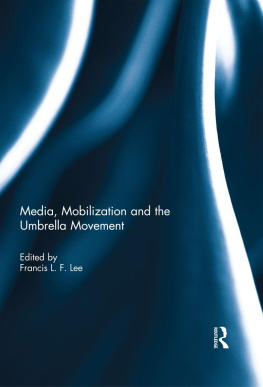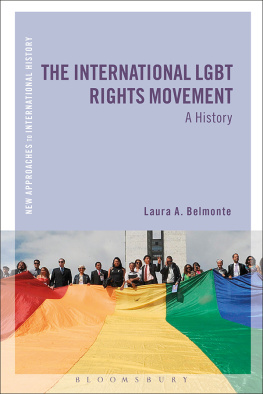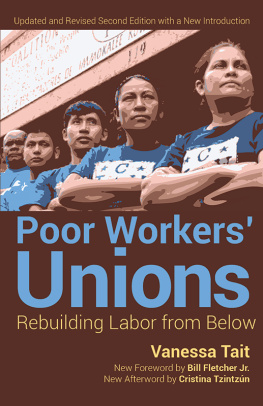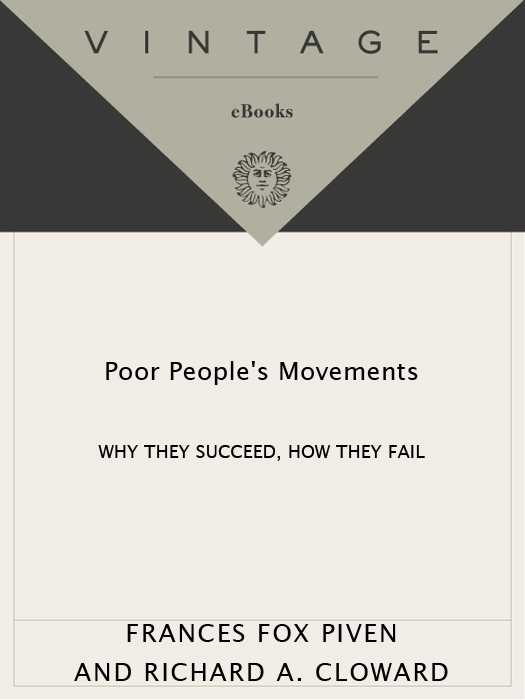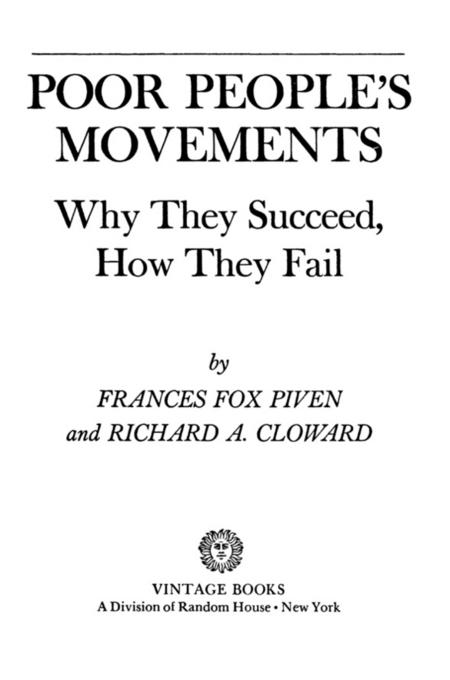Grateful acknowledgment is made to the following for permission to reprint previously published material:
The Antioch Press: Excerpts from Kennedy in History: An Early Appraisal by William G. Carleton. Copyright 1964 by the Antioch Press. First published in The Antioch Review, vol. 24, no. 3. Reprinted by permission of the editors.
Delacorte Press: Excerpted verse from Toil and Trouble by Thomas R. Brooks. Copyright 1964 by Thomas R. Brooks. Reprinted by permission of Delacorte Press.
Fortune: Quotation from Fortune, Fall 1931.
Greenwood Press, Inc.: Excerpt from World Revolutionary Propaganda by Harold D. Lasswell and Dorothy Blumenstock. Used with the agreement of the reprint publisher, Greenwood Press, Inc.
Lexington Books: Bread or Justice by Lawrence Neil Bailis. Reprinted by permission of Lexington Books, D. C. Heath and Company, Lexington, Mass., 1974.
Lexington Books and The Rand Corporation: Protests by the Poor by Larry R. Jackson and William A. Johnson. Reprinted by permission of Lexington Books, D. C. Heath and Company, Lexington, Mass., 1974, and The Rand Corporation.
George T. Martin, Jr.: Excerpts from The Emergence and Development of a Social Movement Organization Among the Underclass: A Case Study of the National Welfare Rights Organization by George T. Martin, Jr., Ph.D. dissertation, Department of Sociology, University of Chicago, 1972. Reprinted by permission.
Monthly Review Press: Excerpts from Rosa Luxemburgs Selected Writings, edited by Dick Howard. Copyright 1971 by Monthly Review Press. Reprinted by permission of Monthly Review Press.
The Nation: No Rent Money 1931 by Horace Cayton in the September 9, 1931, issue and Labor 1975: The Triumph of Business Unionism by B. J. Widick in the September 6, 1975 issue.
National Welfare Rights Organization: Excerpt from the National Welfare Rights Organization Newsletter. Reprinted by permission.
The New American Library, Inc.: Excerpts from Lyndon B. Johnson: The Exercise of Power by Rowland Evans and Robert Novak. Copyright 1966 by Rowland Evans and Robert Novak. Reprinted by arrangement with The New American Library, Inc., New York, N.Y.
The New York Times Company: Excerpt from March 6, 1930, February 2, 1932, and June 16, 1963, issues. Copyright 1930, 1932, 1963 by The New York Times Company. Reprinted by permission.
Radical America: Personal Histories of the Early CIO by Staughton Lynd from the May-June 1969 issue, vol. 5, no. 3. Copyright 1969 by Radical America.
United Auto Workers and Jane Sugar: Four lines of lyrics attributed to Maurice Sugar, Chief Counsel for United Auto Workers, 19371948.
Vintage Books Edition, January 1979
Copyright 1977 by Frances Fox Piven and Richard A. Cloward
All rights reserved under International and Pan-American Copyright Conventions. Published in the United States by Random House, Inc., New York, and in Canada by Random House of Canda Limited, Toronto. Originally published by Pantheon Books in November 1977.
Library of Congress Cataloging in Publication Data
Piven, Frances Fox. Poor peoples movements.
1. Labor and laboring classesUnited StatesPolitical activity
History. 2. Afro-AmericansCivil rightsHistory.
3. Welfare rights movementUnited StatesHistory.
I. Cloward, Richard A., joint author. II. Title.
[HD8076.P55 1979] 322.440973 7854652 eISBN: 978-0-307-81467-8
v3.1
ACKNOWLEDGMENTS
We would like to thank Bert DeLeeuw, Murray Edelman, Mark Naison, Bill Pastreich, and Howard Zinn for reading and commenting on this manuscript at various stages in its preparation. And our particular thanks to S. M. Miller, who both encouraged us to write this book and introduced us to George Wiley.
CONTENTS

Introduction to the Paperback Edition
In the reviews that appeared during the interval between the publication of the hardcover and the paperback editions of Poor Peoples Movements, a number of critics took issue with some of the conclusions we reached. In this brief introduction to the paperback edition, we take the opportunity of continuing the debate.
Perhaps the singular contribution of the intellectual tradition of the left, as it has developed since the nineteenth century, has been to bring working-class people fully into history, not simply as victims but as actors. The left has understood that working-class people are a historical force and could become a greater historical force. And the left has understood that the distinctive form in which that force expresses itself is the mass movement.
In theory, the left has also understood that working-class movements are not forged merely by willing or thinking or arguing them into existence. Proletarian movements, Marx said, are formed by a dialectical process reflecting the institutional logic of capitalist arrangements. The proletariat is a creature, not of communist intellectuals, but of capital and the conditions of capitalist production, a point emphasized in the Communist Manifesto:
In proportion as the bourgeoisie, i.e., capital, is developed, in the same proportion is the proletariat, the modern working class, developed [and] not only increases in number; its strength grows, and it feels that strength more. Of all the classes that stand face to face with the bourgeoisie today, the proletariat alone is a really revolutionary class. The other classes decay and finally disappear in the face of Modern Industry; the proletariat is its special and essential product.
Of course, historical developments frustrated Marxs prediction: expanding capitalist production did not create a revolutionary proletariat.
Still, the basic mode of dialectical analysis underlying the failed predictionthe idea that the struggles of ordinary people are both formed by and directed against institutional arrangementsis correct. The prediction failed because Marx did not anticipate the specific institutional patterns which evolved under modern capitalism, nor did he anticipate the particular forms of struggle which would be generated in reaction to them. These institutional arrangements inhibited the emergence of a unified and revolutionary working class: the spread of imperialism helped to produce the surpluses that would raise working-class material standards in the mother countries; the balkanization of modern industry helped to fractionalize the working class; new institutions such as public education helped to ensure capitalistic ideological hegemony. In turn, these institutional arrangements shaped the character of working-class resistance. Contemporary working-class struggles are fragmented where the left wishes for unity, and working-class demands are reformist where the left prescribes a radical agenda.
But the intellectual left has failed to confront these developments fully, at least in its posture toward movements in industrial societies.proletariat. Or they have mobilized around the wrong organizational and political strategies. The movements of the people disappoint the doctrine, and so the movements are dismissed.
In writing this book, we tried to set aside doctrines in order to examine some of the ways in which the specific features of American social structure have shaped working-class movements. We were concerned to identify the institutional conditions which sometimes make mass movements possible, the institutional conditions which determine the forms taken by mass movements, and the institutional conditions which determine the responses of elites. We were led to these concerns by what we thought were the inadequacies of existing ways of thinking about movements. Obviously, protest movements are discredited in the dominant pluralistic tradition on the ground that there is ample opportunity for the working class to pursue its interests through democratic institutional channels. More to our point, many on the left also discredit these movements because they fail to conform to doctrinal prescriptions regarding constituencies, strategies, and demands. But this sort of complaint typically ignores the historically specific circumstances in which social movements emerge and in which constituencies, strategies, and demands are formed.


